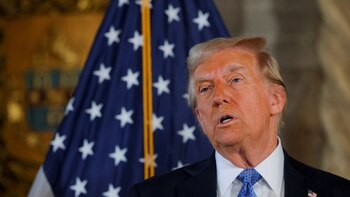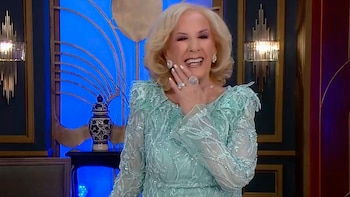Update with the end of the meeting of foreign ministers, statements by the head of European diplomacy ///Brussels, 21 Mar 2022 (AFP) - The European Foreign Ministers reached a political agreement on Monday to contribute an additional 500 million euros (about 550 million dollars), thus doubling their material relief fund to Ukraine.” It is a pleasure to announce that we have reached a political agreement” to release these funds, said the head of European diplomacy, Josep Borrell, at the end of a meeting in Brussels. The EU had already approved the use of 500 million euros from the European Peace Support Fund for the purchase and delivery of lethal materials and medical equipment to Ukraine, which faces a military offensive by Russia.However, during a meeting of European leaders held two weeks ago in Versailles, France, Borrell had launched the proposal to double that value, bringing it to about one billion euros.The use of these resources requires the unanimity of the EU countries, although the members of the block have the possibility to abstain in decision-making, to avoid blocking aid to Ukrainian forces.Resources are used to reimburse EU countries for military aid given to Ukraine using their own reserves of military material.The Ukrainian government submitted to the EU very detailed requests for material requirements The EU Foreign Ministers also discussed the growing pressures for the bloc to adopt sanctions affecting Russia's energy exports for its invasion of Ukraine, albeit for the time being without a substantive agreement. - Sanctions under analysis - “It was not a day for decision-making, and no decision has been taken, but this and other measures have been the subject of ministers' analysis,” Borrell said.So far, the EU has adopted several packages of heavy economic sanctions against Russian officials and companies, but it has resisted extending restrictive measures to the sectors of energy, especially oil and gas, because of the high level of European dependence.German Foreign Minister Annalena Baerbock said that European countries are “working hard to reduce our dependence on fossil fuel imports (...) and we are going to get out of the energy dependence we have on Russia” .Pressure from European ministers for sanctions on the Russian energy sector increased after the assault on the Ukrainian city of Mariupol, which Borrell himself called on Monday as a “huge war crime” .During the day, Ukrainian President Volodymir Zelensky called on the EU to stop all trade with Russia, in particular energy resources.” No euro for the occupants, close all their doors, do not send them their goods, refuse energy resources,” asked the Ukrainian president. In general, it is estimated that around 40% of European fuel gas imports come from Russia, and various estimates indicate that in the oil segment this dependence is more than 20%. Therefore, a significant part of the industrial infrastructure in the block is supported by the availability of these energy sources, in particular Russian gas. This situation is particularly sensitive in Germany.Among the sanctions already adopted, the EU ordered the exclusion of major Russian banks from the Swift interbank network, but it did not include to that extent precisely the entities to which it makes significant payments for gas and oil imports. European foreign ministers also discussed the situation in Mali.” We have sent a request to the authorities to clarify the conditions under which we can remain there. As long as the answer does not arrive, I have commissioned the military leader of the team to adapt the operation of the mission to the circumstances in which it faces,” said Borrell.ahg/MB —
Últimas Noticias
Debanhi Escobar: they secured the motel where she was found lifeless in a cistern

The oldest person in the world died at the age of 119

Macabre find in CDMX: they left a body bagged and tied in a taxi
The eagles of America will face Manchester City in a duel of legends. Here are the details

Why is it good to bring dogs out to know the world when they are puppies




